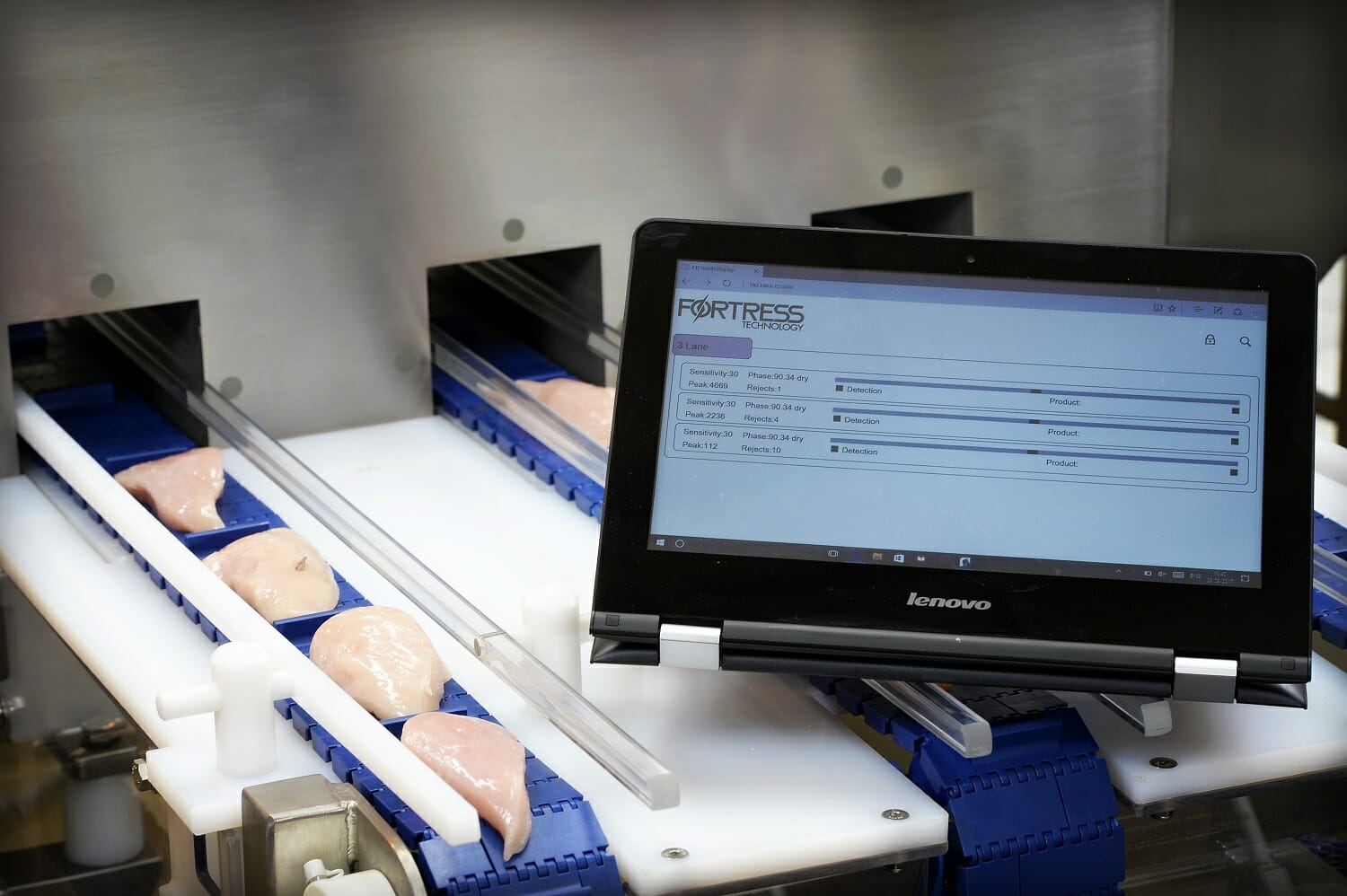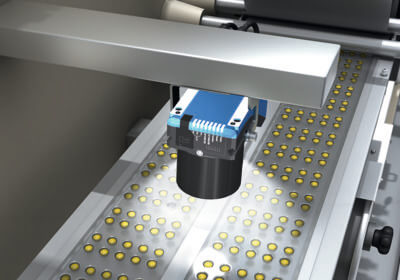In fast paced, harsh or cramped food production and packing lines, where metal detectors are subject to rigorous washdowns and knocks from operatives, modern machine control panels are especially vulnerable to damage. While most are designed to withstand water ingress, Fortress Technology reports that these delicate screens can be a costly item to replace, with machine inoperability caused by a single panel failure significantly impacting line productivity.
The answer, recently launched by the company, is to take the high risk item out of the environment and manage operations from anywhere in the world using wireless machine-to-machine (M2M) communication on any portable device. Believed to be the first-of-its kind web-based browser, Remote Management Software (RMS) connects multiple Fortress metal detectors to familiar consumer electronics, including mobiles, tablets and laptops. Customers can log in and access the system via a local website built within the detector, which means it has the potential to be accessed from any location in the world.
The rationale is to enhance the reliability, safety and production efficiency within factories while safeguarding valuable machine assets, emphasises Managing Director Phil Brown: “Traditionally, food inspection OEMs make screen display membranes bigger, easier to use or introduce colour displays to improve communications. Yet, these advances actually make control panels less robust in wet, dusty and harsh production environments, increasing the risk of damage and subsequent machine downtime. Plus, they are more costly to replace.”
Activity reports, exported on demand in Excel or PDF format, can be selected for a specific production line and/or time period for fully traceable Quality Assurance information. For record keeping, event and performance information is stored securely and remotely for a minimum of 10 years, with the option to extend storage capability to 20+ years. Each event is automatically time stamped to comply with Hazard Analysis and Critical Control Point (HACCP) food safety management systems and principles.
For large or multi-site factories, this level of oversight is especially helpful for supporting flexible production. It means one operative or production manager can monitor all their company’s metal detectors, analysing comparative data for different inspection zones, side-by-side.
An unlimited number of Fortress metal detectors can be connected wirelessly using a powerful back-end SQL to monitor activity and generate reports.
“When it comes to digitisation in the food factories of the future, data analytics and intelligence will be central,” notes Phil. “With RMS, Fortress is helping to bridge the gap between consumer and industrial technology and theory and commercialisation.”
Aside from safeguarding valuable local machine assets, having software that connects metal detectors wherever they are located in the world means that multinational organisations can stay in touch with operations in remote manufacturing hubs or politically volatile regions. “Having centralised control enables food manufacturers to analyse machine performance across multiple sites and troubleshoot technology issues, without having to be physically in front of machine,” adds Phil.
For more information, visit www.fortresstechnology.co.uk or call +44(0) 1295 256266.







